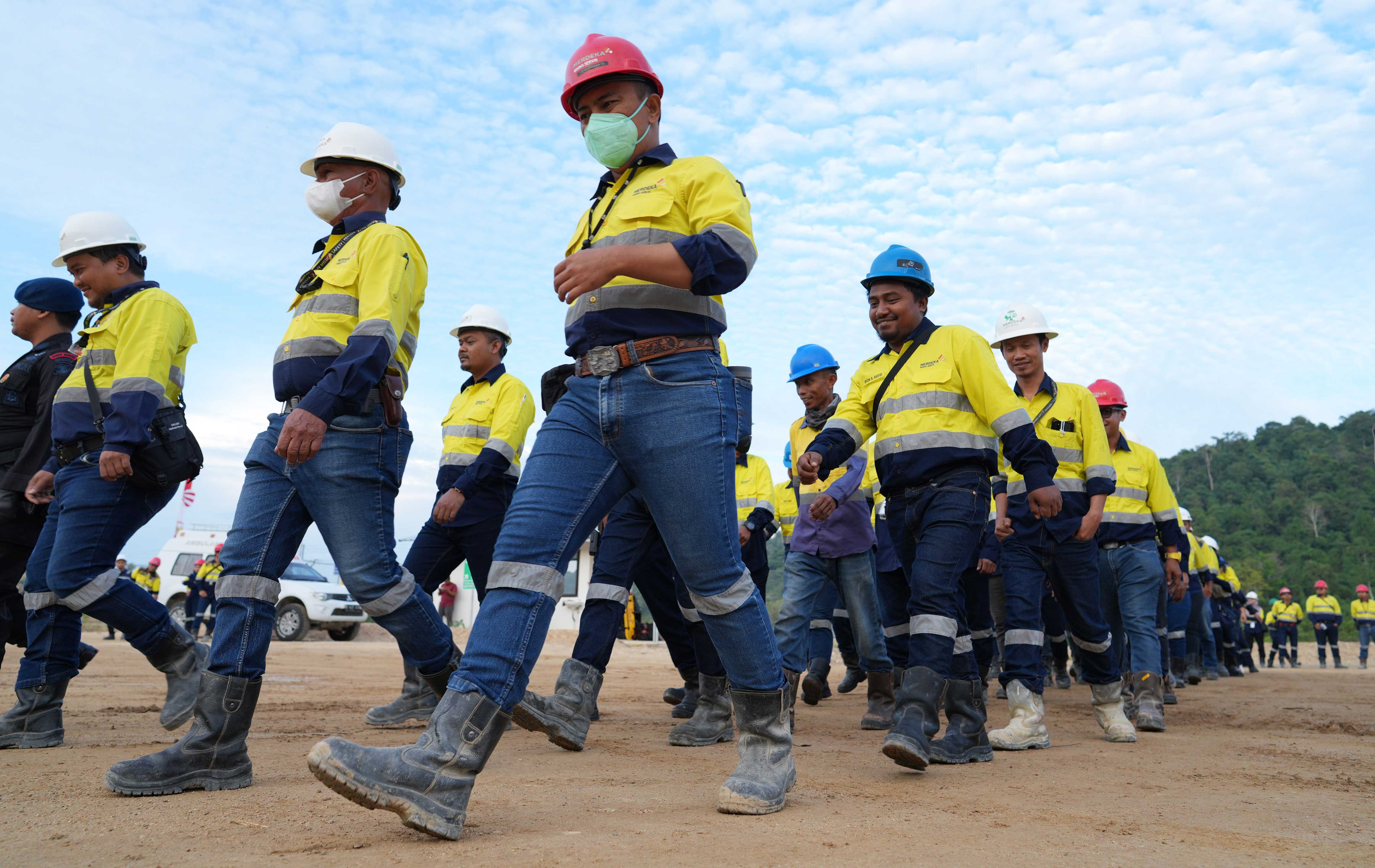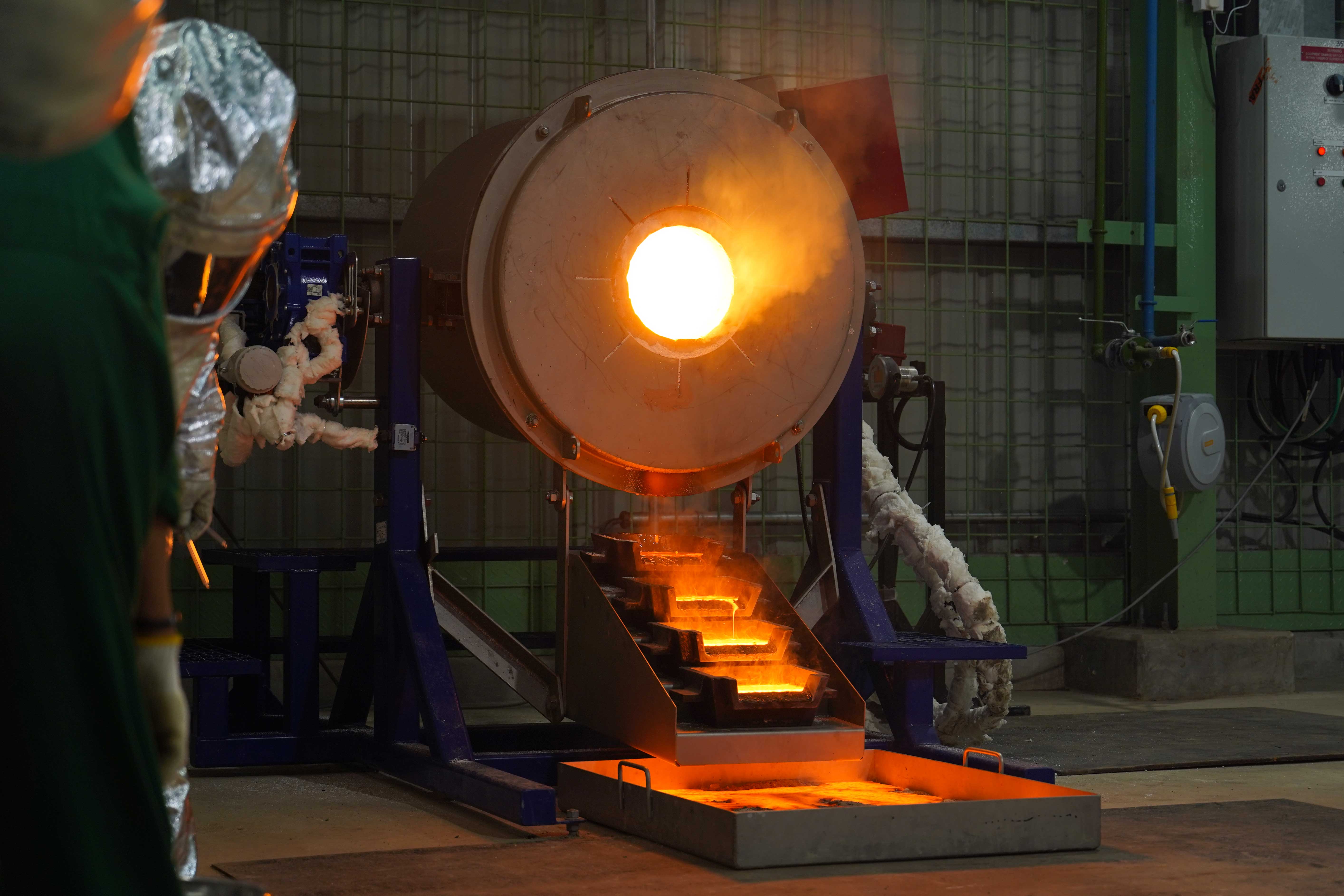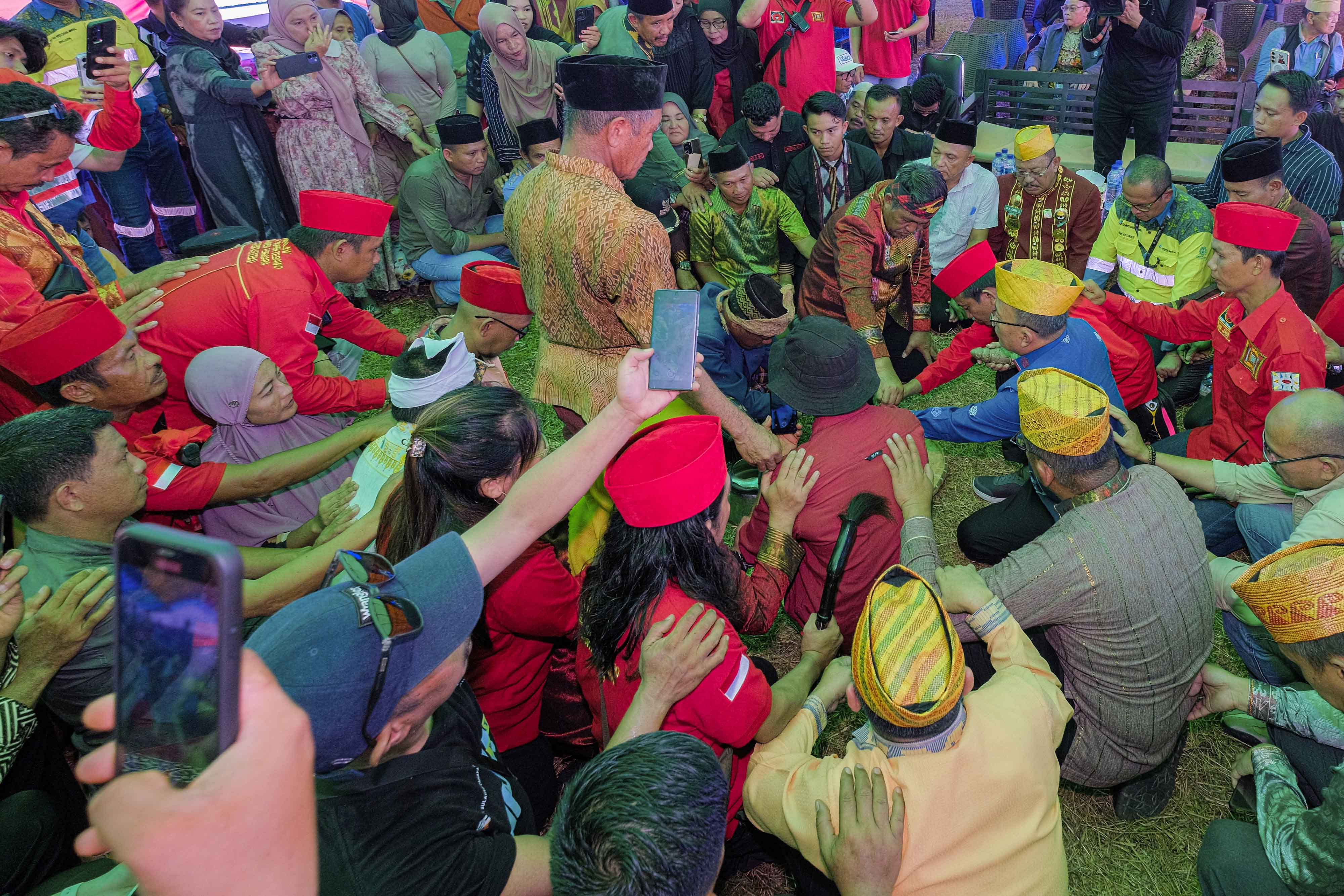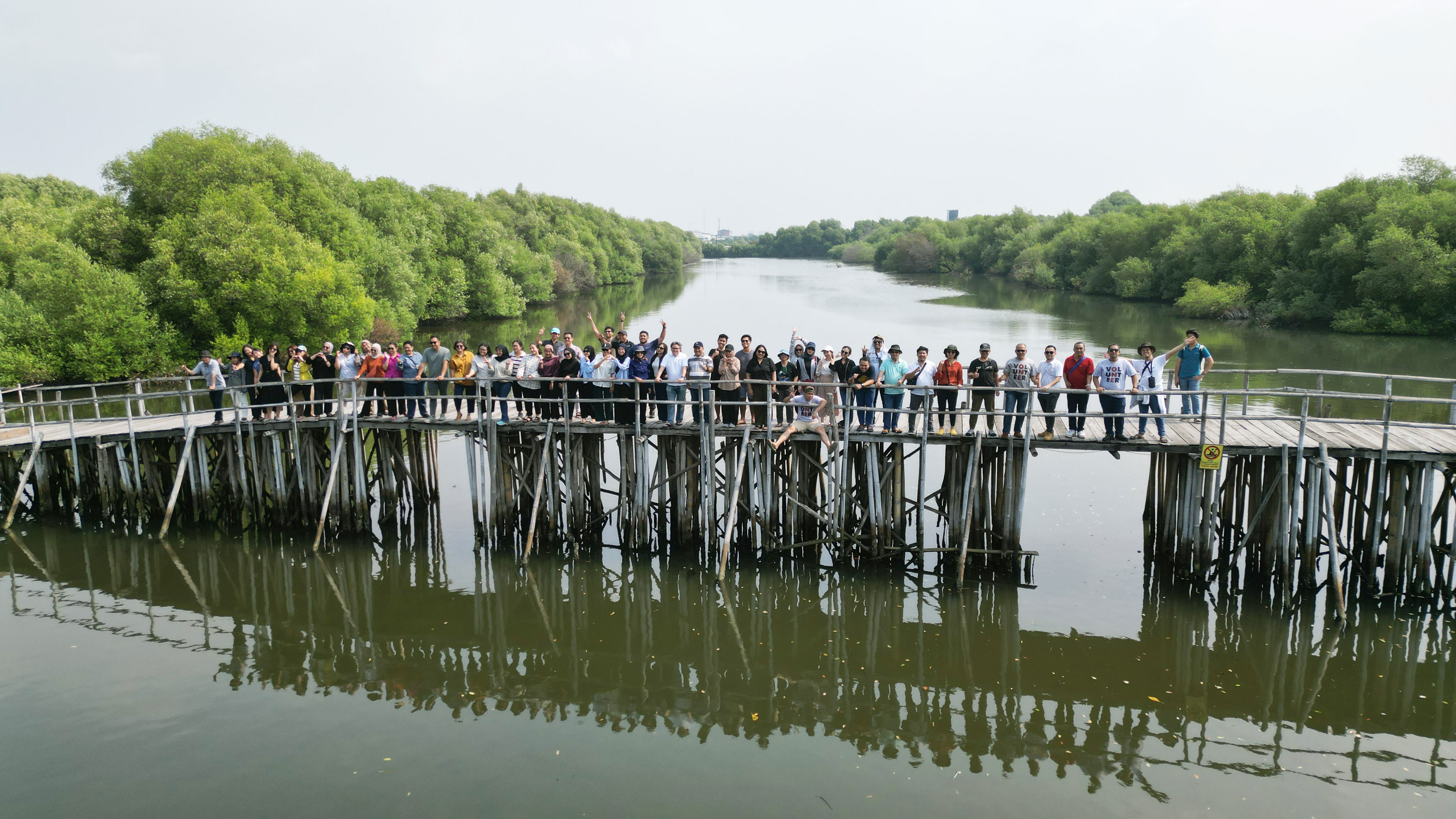
Merdeka Celebrates World Mangrove Day
In line with its commitment to support climate change mitigation, the Merdeka Group is restoring mangrove areas by taking the momentum of World Mangrove Day 2024.
Mangroves play a crucial role in reducing greenhouse gas emissions as they can absorb up to four times more carbon than terrestrial forests. Indonesia boasts the largest mangrove forests in the world, covering 3.36 million hectares or 21 percent of the world’s total mangrove area. These forests encompass 40 of the 54 true mangrove species, making it the most biodiverse in the world. Indonesia’s mangrove forests store 3.14 billion tons of CO2, equivalent to the greenhouse gas emissions from 2.5 billion motor vehicles driven for a year. Moreover, mangroves serve as habitats for thousands of species, provide natural coastal defenses against erosion and large waves, and are a primary source of livelihood for coastal communities. By 2022, Indonesia was losing nearly 13,000 hectares of mangroves annually, an area larger than Paris. Therefore, it is imperative for Merdeka to support mangrove restoration in line with its Sustainability Policy.
Headquartered in Jakarta, PT Merdeka Copper Gold Tbk planted 1,000 mangroves in the Angke Kapuk Nature Tourism Park, North Jakarta, and the Muara Gembong area, West Java. This mangrove planting in Angke Kapuk is part of Bakti Merdeka, a volunteer social activity undertaken by employees. On July 25, 2024, one day ahead of World Mangrove Day, 65 volunteers, including Merdeka employees and national media journalists, participated in various mangrove planting activities in Angke Kapuk.
The Bakti Merdeka volunteers were involved in creating bamboo cages, known as bronjong, to protect mangrove seedlings from tidal waves. Following this, they planted mangrove seedlings. To better understand the mangrove area in Angke Kapuk, the volunteers walked through the mangrove forest and took a small boat along the Angke Kapuk estuary. They then continued planting the mangrove seedlings. Once fully grown, the 1,000 mangrove seedlings planted by Merdeka will be capable of absorbing approximately 25,000 kg of carbon annually.
Cahyono Seto, Director of PT Bumi Suksesindo, one of Merdeka’s subsidiaries, stated during the event’s opening that environmental actions at each Merdeka Group business asset are not only meant to demonstrate the company’s commitment, but also to engage employees more actively in efforts to repair environmental damage. “In addition to contributing to the environment through mangrove seedling planting, the Merdeka Group also fosters collective awareness among employees through sustainable environmental conservation programs, resulting in tangible positive actions for the surrounding environment,” Seto said.
In addition to Jakarta, PT Bumi Suksesindo also carried out mangrove planting in Banyuwangi on the same day. The operator of the Tujuh Bukit Gold Mine planted thousands of mangroves in Kedungsari Village, part of Pangpang Bay, the only remaining mangrove area on the eastern coast of East Java, which was designated as an Essential Ecosystem Area in 2020. This mangrove planting in Banyuwangi and Jakarta follows the planting in Keurea Village, Morowali, in July by PT Merdeka Tsingshan Indonesia, the operator of the AIM Plant at the Indonesia Morowali Industrial Park.
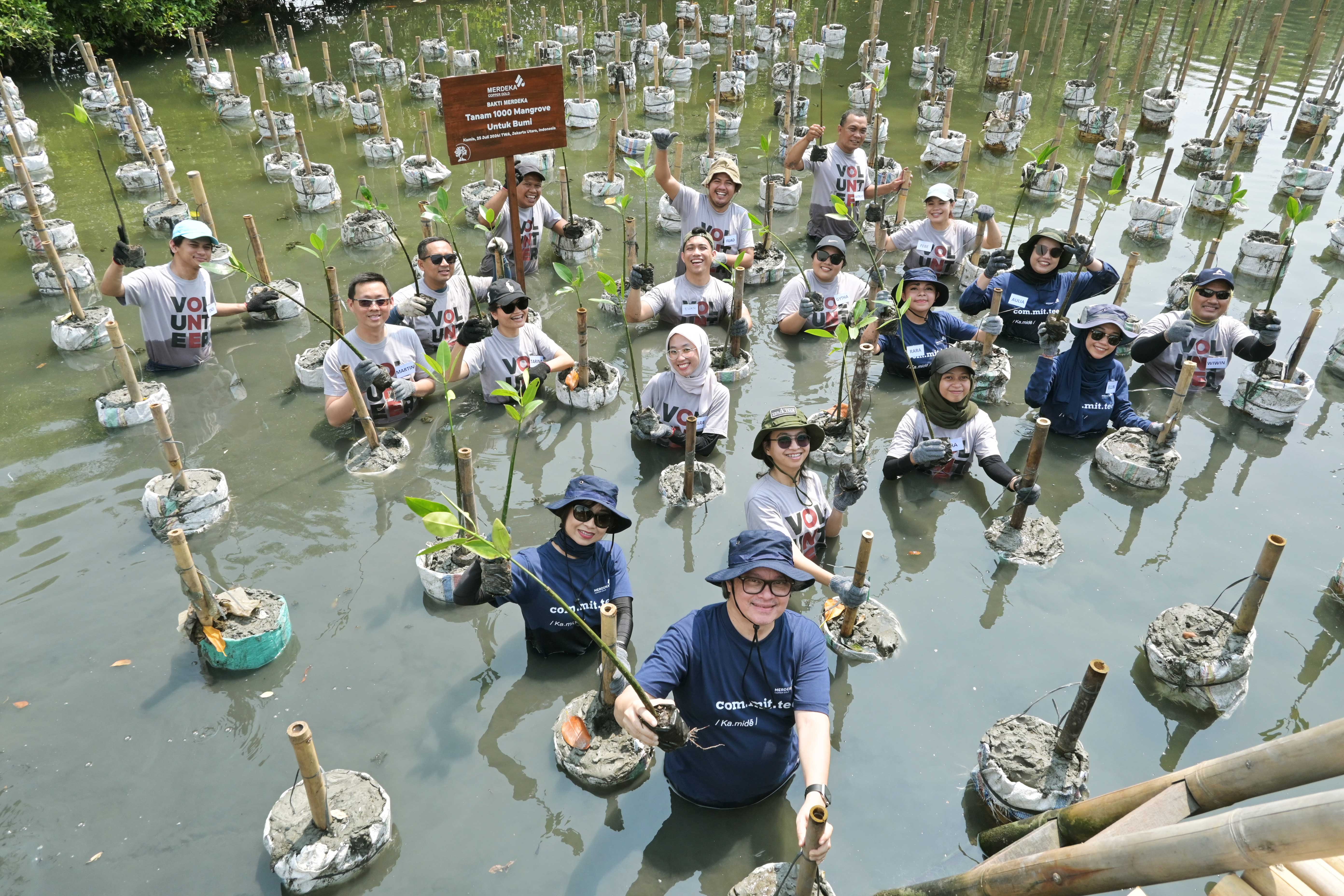
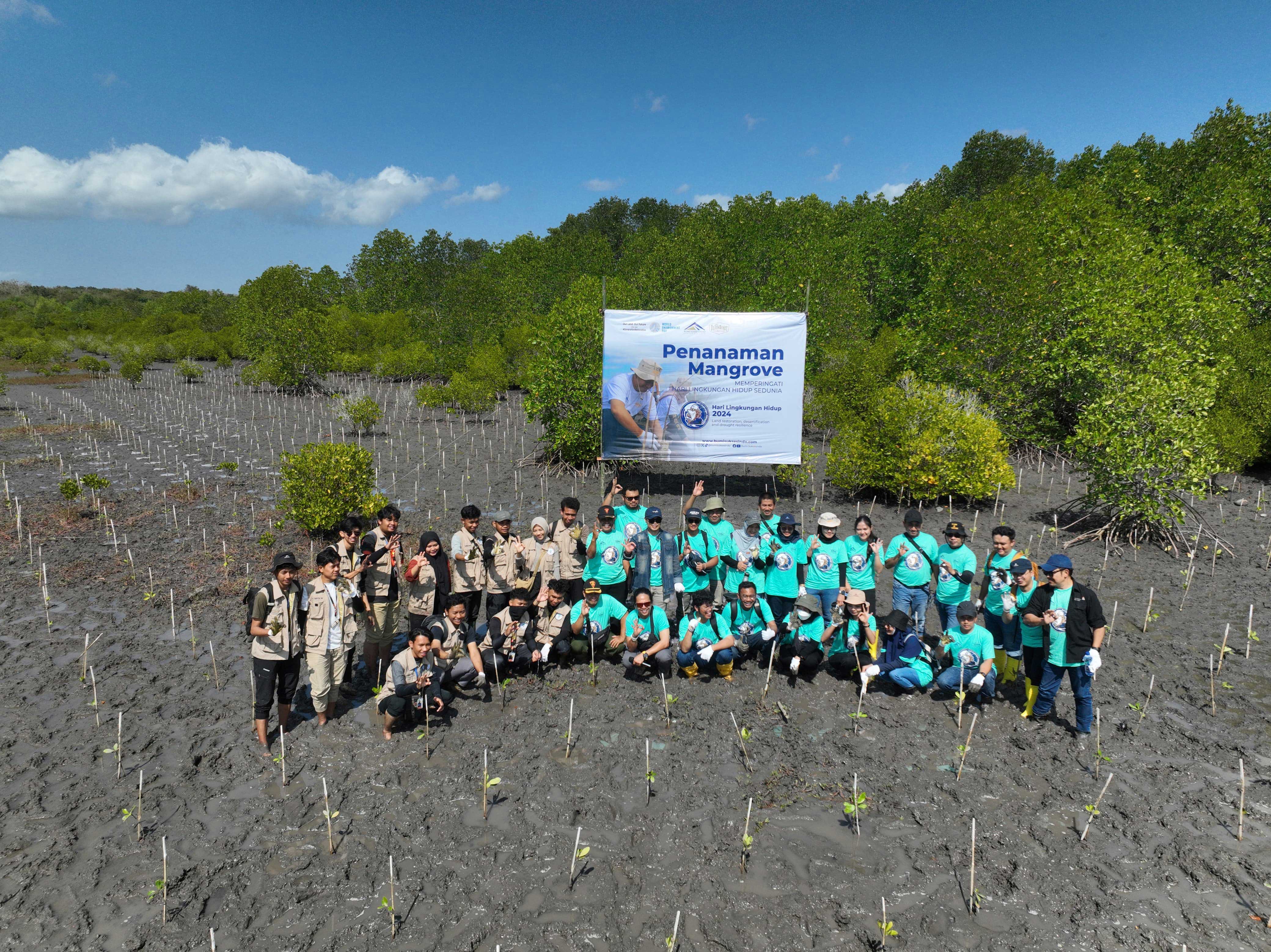
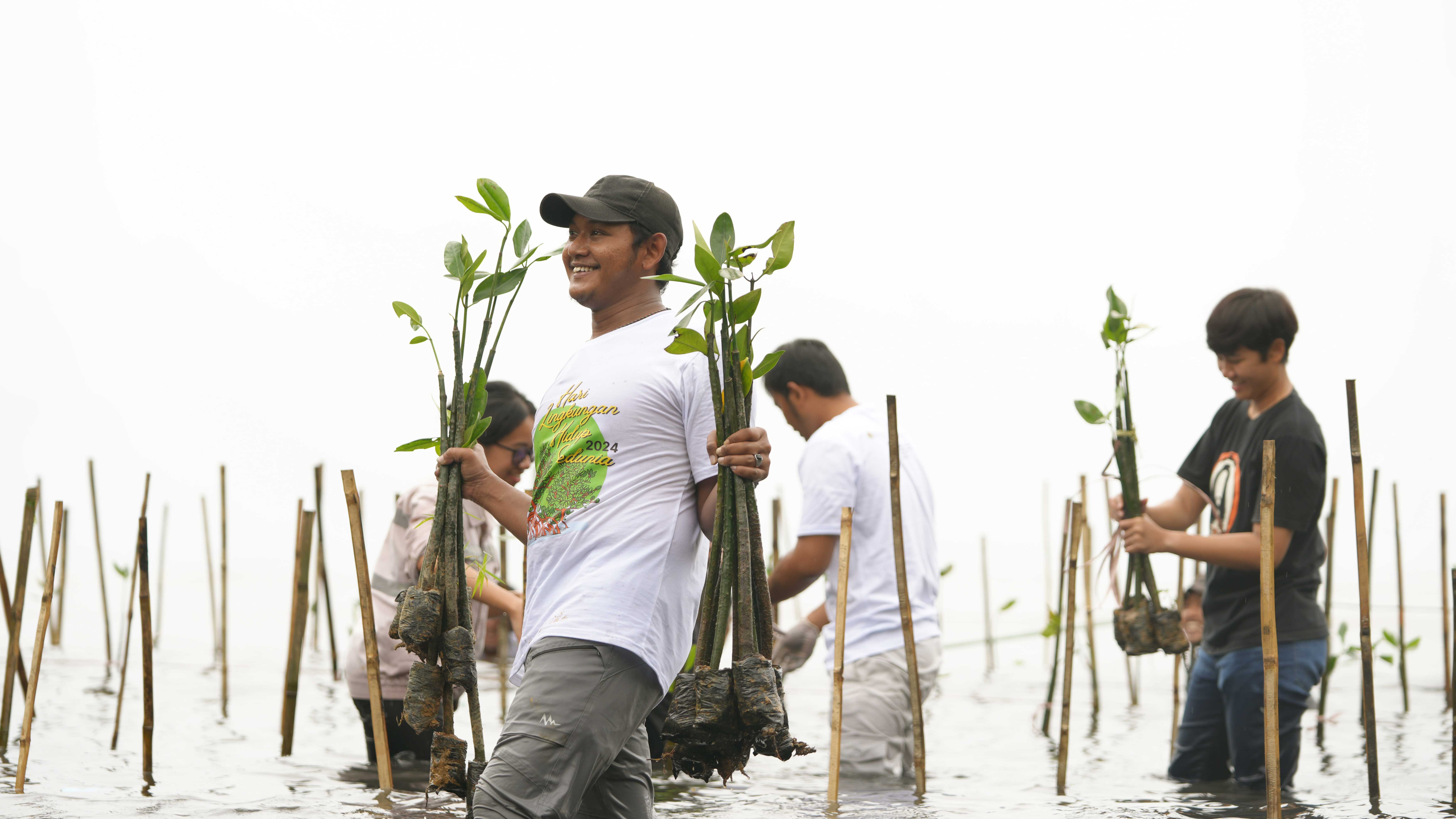
Main photo: Bakti Merdeka volunteers at the Angke Kapuk Nature Tourism Park.
*
*
